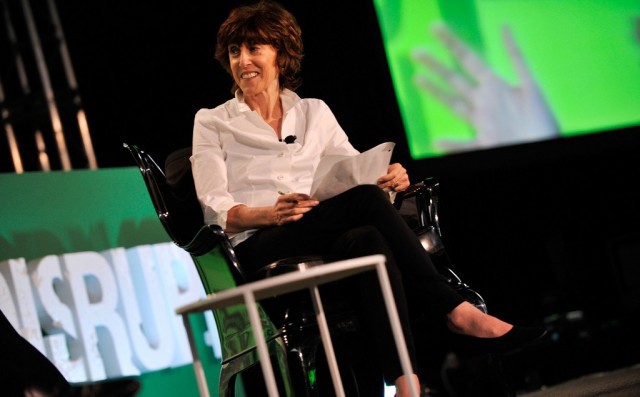Why We Need Mentors

Earlier this month, I got an email from my alma mater, Columbia University’s Graduate School of Journalism, asking me if I wanted to participate in their mentor program, which pairs up a student with an alumn from the school who is working in the field they want to eventually work in (my field being startups and web media). I’ve done this before, and had a great experience with the student I was paired with, and will be doing it again this year.
When I was a young, bright-eyed graduate student intent on reporting from a news bureau in Europe or Asia or the Middle East, I signed up for the program as a mentee, and was paired with a foreign correspondent who worked and lived in Italy.
And, boy, am I glad I had this mentor, because she basically talked me out of pursuing a career in international reporting. Unless I was hired straight out of school by a big, successful news agency that wasn’t shutting down its bureau due to costs (the recession was about to hit and that was going to be very unlikely), or was independently wealthy and could afford to move to a foreign country on my own (hah — not at all), I was told I should reconsider my next career move.
“Establish your career in the U.S., and get as much of your student loans paid off as you can,” she said. “If you’re embedded in a war zone, or if the country you’re in is collapsing, the last thing you want to be thinking about is making a student loan payment. Get your life situated while you’re young, and if you’re still interested in international journalism later, I’ll be here to talk more about some specific things that will be helpful to you.” It was the real talk I needed.
One of the best things you can do for your career is find a mentor, and if you’re lucky enough to have more than one — even better.
This week, New York magazine has a feature by Frank Rich on the late Nora Ephron, which examines why Ephron decided to keep her cancer a secret from so many of her friends and family members. But the most fascinating part of the story was learning that Ephron served as a mentor to several generations of writers who wanted to emulate her — 63-year-old Frank Rich being one of them, and also 20-somesomethings Lena Dunham, and James McAuley, who works in the editorial section at The Washington Post. At various times in their lives, Ephron kept in touch with these three talented, and fortunate, writers, and did everything from editing their work, to giving them advice on their careers and love lives. They were (are) very fortunate to have had her as a role model.
We all can’t have Nora Ephron as our mentor, but we can have people who will fill the same role.
In high school, my 11th grade English teacher Mr. B said he thought I had a lot of promise as a writer, and when I told him I was interested in writing in the entertainment industry — maybe for TV or film — he shook his head and told me that the road for Asian Americans in the entertainment industry was a really tough one, and maybe I should focus on something else. I was caught off guard by his comments and he later chased me down the hallway to say he changed his mind.
“Forget what I said,” he conceded. “Forget anyone who ever tells you that you probably can’t do something, because If you’re good at what you do, you’ll succeed. So, let’s focus on getting you really good.”
He wrote letters of recommendation and mailed them to every college I ended up applying to. He would be the first of many great mentors in my life — people who have crossed my path, seen something they thought they could nurture, and encouraged me, by doing everything from offering advice, to offering me jobs.
Choire Sicha has been a great mentor, and so has Mark Armstrong, whom I work with at Longreads. And even until she died earlier this month at the age of 90, Judith Crist was always happy to offer me advice, and, more often, criticism.
Who do you turn to when you need career advice? Who can you ask to look at a conflict you’re experiencing, assess the situation with an even hand, and offer an unbiased opinion? Who has talked you out of doing something that would have probably ended badly for you, or talked you into something that has been exactly what you needed? Who has helped you believe in yourself? Who has, for no reason or benefit to themselves, reached out their hand and offered you a firm grip?
You do not need a mentor to flourish, but you will if you have one.
Photo: TechCrunch
Support The Billfold
The Billfold continues to exist thanks to support from our readers. Help us continue to do our work by making a monthly pledge on Patreon or a one-time-only contribution through PayPal.
Comments